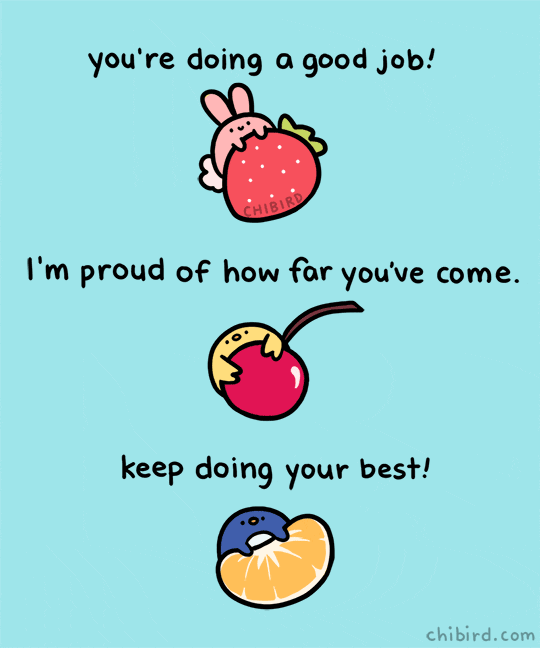Dealing with unsolicited and unhelpful advice can be one of the hardest parts of having ADHD. Every ADHDer has probably heard some variation of this question:
“Have you tried [insert neurotypical strategy here]?”
No matter what neurotypical strategy I’m given (“Make a list! Exercise more! Have you tried setting reminders?”)—none of it actually helps. In fact, it often ends up making things worse because, in these moments of vulnerability, I need a friend with an open ear, not a workout regimen.
Even if you mean well, giving unsolicited advice to a loved one with ADHD can be unhelpful at best and downright harmful at worst. Keep reading to discover what ADHDers are sick of hearing—and what you can say or do instead.
Too long; didn’t read
- To support someone with ADHD, avoid dismissing, minimizing, or comparing their struggles.
- Unsolicited ADHD advice can feel more like an attack to someone with ADHD due to a tendency towards self-criticism.
- ADHDers struggle with executive functioning, so things that work for neurotypical brains often don’t work as well for ADHD brains.
What not to say to someone with ADHD
1. “Everyone is a little ADHD”
“I sometimes think I have a little ADHD, too.”
If I had an Adderall for every time someone said this to me, I wouldn’t have to worry about ADHD medication shortages at all. Like, ever.
If you actually think you might have ADHD, then you should discuss your concerns with a doctor. But many ADHDers have encountered people who mention “being a little ADHD” because they’ve also once misplaced their keys or that “everyone has ADHD nowadays.”
You don’t have to have an official diagnosis to join the conversation, but likening the ADHD experience to something everyone experiences is dismissing the very real struggles we face daily and reinforces the imposter syndrome in us.
2. “You just need to get organized”
While most of us wish we were more organized, that doesn’t mean it’s as simple as just implementing some organization system. We struggle with organization precisely because of our ADHD, so suggesting that it’s an easy fix sounds like claiming that if we “just tried hard enough,” we’d be able to overcome our ADHD symptoms. And the little word ‘just’ diminishes how much effort we’re already putting in to try and stay on top of things.
3. Any comment about medication
People say that ADHD medication is over-prescribed, parents are too quick to medicate their kids, or that all I need is behavioral modification. The fact is that for many ADHDers, medication is an integral part of managing their symptoms effectively.
Commenting on someone’s decision to take medication or to medicate their child is not OK. Many factors you may be unaware of go into these incredibly personal decisions. Let’s leave them between doctors and patients who know their own experience.
4. “Have you tried…?“
“Have you tried a planner?”
“Have you tried meditation?”
“Have you tried being more disciplined?”
No matter what you end this sentence with, that’s basically all we hear. And to answer your question, yes, we’ve tried. And you telling us the most obvious possible solutions, thinking we haven’t thought of them ourselves yet, feels like an insult. Not to mention that it sounds like you believe we just need to “try harder.”
5. “Imagine how smart you’d be if you didn’t have ADHD”
It might not be as common as the other phrases, but I’ve heard this more than once. It is incredibly insulting (talk about a backhanded compliment!) and a complete misconception. ADHD has nothing to do with IQ.
I think what you meant to say is, “Imagine how much more productive you’d be if you didn’t have ADHD.” Which isn’t really any better. Because guess what? I think about that constantly. I’m fully aware of my tendency to procrastinate by doing less important stuff, and I genuinely wish I knew how to conquer it. What’s your point?
Why even well-meaning ADHD advice can be harmful
People usually mean well when they offer advice, but sometimes, intention matters less than the outcome. Those with ADHD are more likely to perceive criticism, so your helpful suggestions can feel more like attacks.1
We feel criticized
Rejection sensitivity dysphoria (RSD) is common amongst ADHDers, meaning we might be overly sensitive to and even fearful of rejection, and criticism feels a lot like rejection. Again, you might think you’re offering advice, but that’s not how it feels to us.
That’s because ADHD is associated with higher levels of self-criticism and anxiety and lower levels of self-compassion.2 We’re already highly critical of ourselves and often feel frustrated by our shortcomings, so your advice only reinforces our feelings of inadequacy.
We think differently
ADHD is an executive functioning disorder, meaning we struggle with certain executive functions tasks like working memory, organization, and time management. Our brains literally work differently than neurotypical brains.
So, when you offer advice, keep in mind that it’s something that works for someone with a neurotypical brain. In other words, it’s not likely to help us.
We feel misunderstood
It’s normal to want to help when someone you care about is struggling. But ADHDers often feel misunderstood and isolated anyway. To us, it seems like everyone else has figured out some secret code to adulting that we just can’t quite crack.
Again, it’s understandable that you want to help, but unsolicited advice isn’t the way.
What to do instead
1. Just listen
Just listen! Most of the time, we just want to vent about feeling frustrated, angry, or unfocused, but we don’t want or expect you to fix how we feel. We want to feel heard, understood, and supported.
2. Validate our feelings
You can support ADHDers by believing us and offering validation.
- “That sounds really difficult.”
- “I can’t imagine how hard that is.”
- “Your struggles are valid."
3. Offer encouragement

People with ADHD have a hard time remembering their strengths. Help us by reminding us of past achievements and challenges we’ve overcome.
4. Ask how you can support people with ADHD
Asking before offering advice or support gives agency to the person with ADHD rather than making them feel patronized.
Here are some examples:
- “Is there anything I can do to help?”
- “Tell me how I can help you.”
- “Is there any way to make this easier for you?”
- “Could body-doubling be helpful?”
- “Do you want to talk it through with me?”
5. Learn about ADHD
Learning more about ADHD and how it affects your loved one’s life shows that you truly care and helps by not relying on the ADHDer to educate others around them. Plus, you might come across neurodivergent-friendly strategies to suggest.
A note for those of us with ADHD:
It’s helpful to remember that advice isn’t the same as criticism. In fact, people are more likely to give unsolicited advice to someone they feel emotionally close to.3
So, instead of taking it as a criticism, try to see an unhelpful suggestion as a misguided way of showing love.
---
Sources
1 PLOS ONE | Experiences of criticism in adults with ADHD: A qualitative study (2022)
2 Mindfulness | Self-compassion and Perceived Criticism in Adults with Attention Deficit Hyperactivity Disorder (ADHD) (2020)
3 Journal of Social and Personal Relationships | Relationship closeness predicts unsolicited advice giving in supportive interactions (2016)





.jpg)

